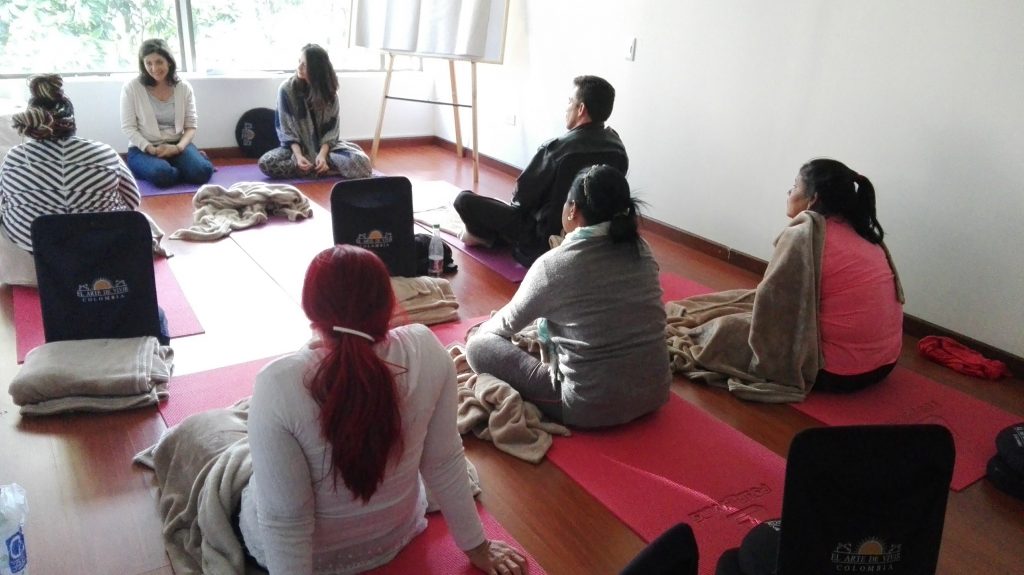Empowering Cuban Human Rights Defenders through trauma relief

Civil Rights Defenders’ Latin American Department is developing an innovative strategy to provide psychosocial rehabilitation and empower human rights defenders. The work is done together with the Trauma Relief Program at the Art of Living Foundation in Bogotá, Colombia.
During the first eight months of 2017, Cuba has arbitrarily detained 3706 human rights defenders. Meanwhile, Cuba also has 140 political prisoners, a doubling compared to the same time last year.
Human rights defenders in Cuba suffer extreme hardship. State authorities arbitrarily detain human rights defenders, beat them up, threaten them publicly, and forbid them to leave their houses. Their family or relatives are expelled from work or denied higher education. They also experience frequent house searches, where human rights information and technical equipment get confiscated. Additionally, they are not allowed to meet in large groups, run human rights workshops, or do any kind of public manifestations. According to one of our partners in Cuba, The Cuban Commission on Human Rights and National Reconciliation (CCDHRN), during the first eight months of 2017, Cuba has arbitrarily detained 3706 human rights defenders. Meanwhile, Cuba also has 140 political prisoners, a doubling compared to the same time last year. Put together, these circumstances cause great stress and fear among our Cuban partners. To make things worse, they have no trust in Cuban psychologists or psychiatric treatment, suspecting their stories will be passed on to the government.
The mental stress our partners are put under, affect them very seriously, and is one of the core obstacles in their work to assist other victims, meaning they perform their important work on human rights less effectively.
Mental health is not an issue that our human rights defenders talk about. Hence, we decided to investigate how different Colombian organisations deal with this situation, which is how we discovered the Art of Living Foundations’ Trauma Relief Program. The programme facilitates relief from fear, anxiety, state repression, depression and feelings of frustration in victims. Participants are empowered through cost-effective and non-collateral techniques that integrate breathing and deep relaxation exercises. This allows them to reach conciliation, teaching them how to manage and transform negative patterns and emotions into positive one’s, as well as strengthen bonds with their community. The participants also get taught about empowerment techniques for proactive self-help which they can use whenever and wherever after the training. Perhaps most impressive is that very good results are achieved in a very short time.
The self-help techniques they learn during the training have made it possible for them to improve their emotional health.
During 2017 we introduced the Trauma Relief Program to one of our Cuban partners and received positive feedback. During the programme the Cuban human rights defenders relax and release tension, giving them a new perspective on their personal situation and their human rights role. The self-help techniques they learn during the training have made it possible for them to improve their emotional health, quality of sleep, reduced their levels of stress and fear, as well as improved their communication skills.
The new innovative approach to mental health fits great with the Human Rights Innovation Initiative. It is prioritised by the human rights defenders, their experience is the driving force, and at the same time it promotes sustainability, both in the method and for future work. Civil Rights Defenders have just initiated this work, but we believe this will become an integral part of our cooperation with Cuban human rights defenders. In fact, it feels more a question of when we will expand it to our other human rights defenders around the world.
